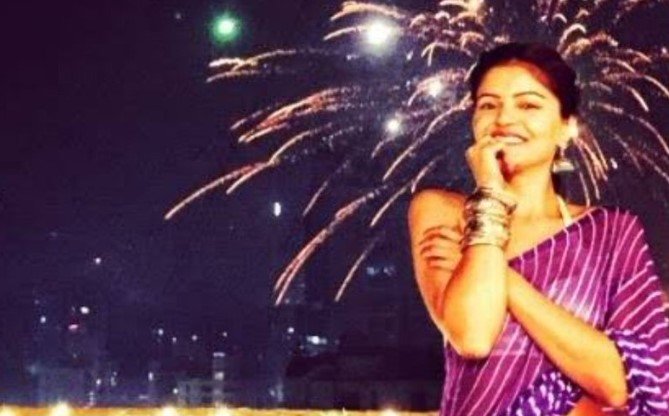Actor Rubina Dilaik found herself amidst controversy following her recent social media outcry over the continuous bursting of firecrackers post-Diwali, citing concerns about air and noise pollution. Dilaik, known for her role in the series “Shakti: Astitva Ke Ehsas Ki” and winner of Bigg Boss season 14, expressed dismay at the prolonged firecracker activity since November 10, impacting the environment and disrupting her sleep.
In a statement shared on X, she urged, “Diwali is OVER, Stop bursting crackers… since 10th November, non-stop crackers are being burnt till 3 am in the morning… ENOUGH NOW… Air pollution toh hai hi… Noise pollution is killing our sleeps….”
However, her remarks triggered a backlash among netizens who criticized the actress for speaking out against pollution only during the Diwali festivities while maintaining silence on environmental issues throughout the year. Several users highlighted instances where they perceived inconsistencies in her stance, referencing her lifestyle choices and past actions, including using luxurious cars, residing in a wooden house made from trees, and engaging in activities perceived as environmentally harmful.
We don’t need Gyan – Social Media Trolls Rubina Dilaik
Responding to the criticism on her Instagram profile, Rubina Dilaik shared screenshots of the comments, dismissing them as unwarranted interference and stating, “Don’t come and comment on my Instagram… its NOT GYAN.”
In another post, she defended her stance, emphasizing Diwali as a festival of lights and refuting the mention of firecrackers in Ramayana. Rubina Dilaik targeted those she termed as ‘pseudo Hindu propaganda agents’, asserting her position on the festival’s traditions.
However, Bombay High Court lawyer Ashutosh Dubey countered Dilaik’s assertion, referencing Skand Purana to establish the historical relevance of firecrackers during Diwali celebrations. Dubey highlighted excerpts from ancient scriptures that described the use of fireworks during Lord Rama’s homecoming, emphasizing the tradition of bursting firecrackers during the festival.
The exchange sparked a debate on social media regarding the cultural significance and historical context of firecrackers during Diwali, drawing attention to differing interpretations of religious scriptures and their modern-day implications.

